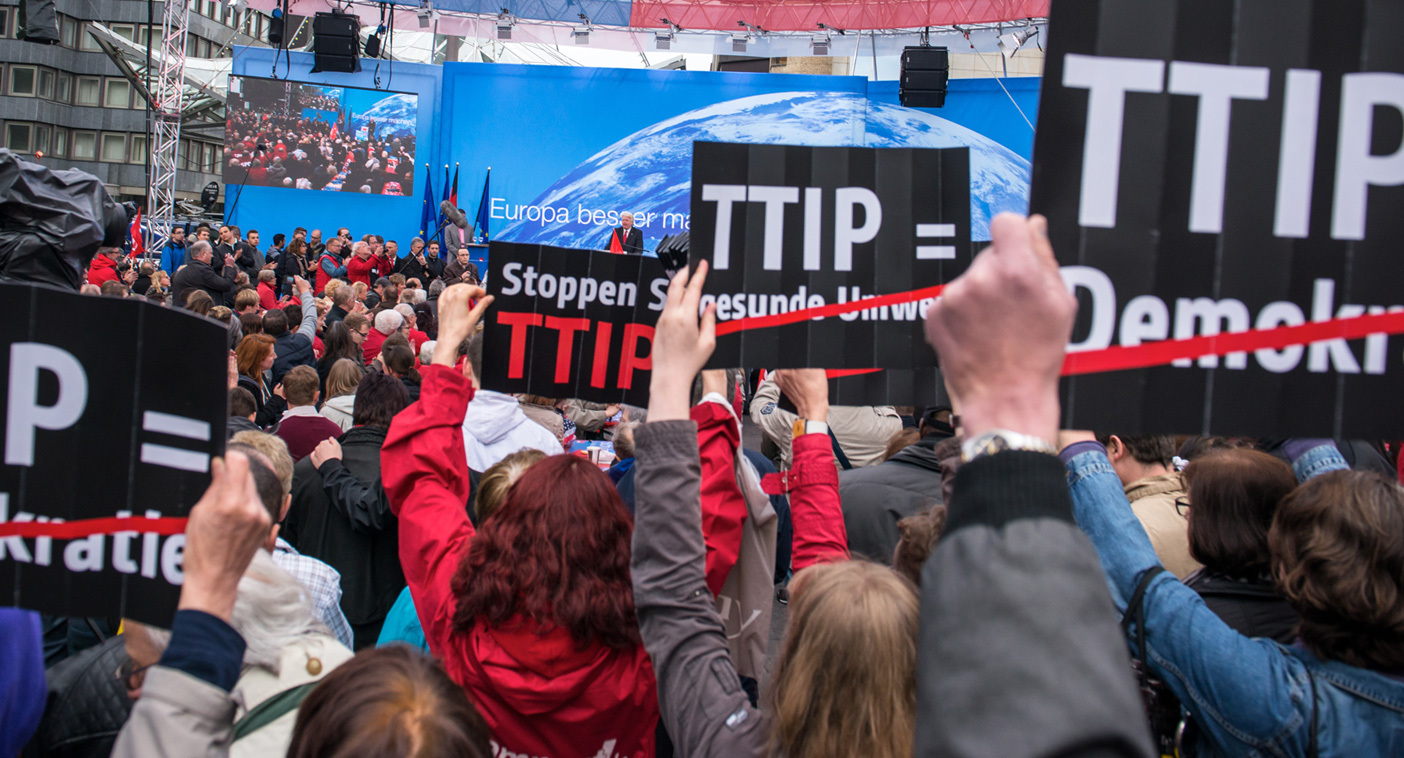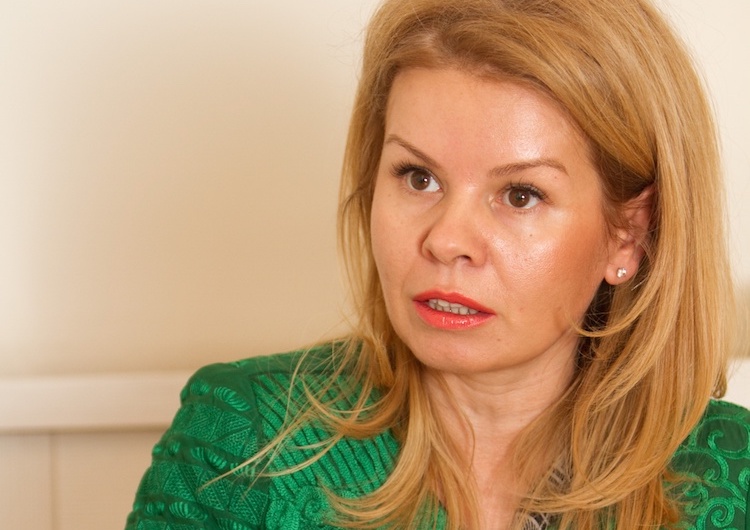The Transatlantic Trade and Investment Partnership means progress or Trojan Horse

Proponents of the agreement try to make their case by citing commercial and economic benefits while those who oppose the idea underline not only disadvantages in said areas but also potential environmental and health issues.
If one is to take a close look at what is being negotiated they might come to the realization that the party that has the most to lose in this matter is Europe. It is of paramount importance to be informed before making a decision. What then is essential for us to know?
The agreement
The European Commission defines the potential deal as “a free trade agreement currently being negotiated between the European Union and the United States. The aim of the agreement is to create growth and jobs on both sides of the Atlantic by removing trade barriers. Removing trade barriers would boost and facilitate the buying and selling of goods and services, as well as investment in each of the economies.”(1)
It is characterized as having three main elements:
“Market access: removing customs duties on goods and restrictions on services, gaining better access to public markets, and making it easier to invest; improved regulatory coherence and cooperation by dismantling unnecessary regulatory barriers such as bureaucratic duplication of effort; improved cooperation when it comes to setting international standards”(2)
The deal is meant to improve the economies of both the US and the EU by giving firms better access to US markets and vice-versa. This would strengthen cooperation in several areas.
The EU is currently also negotiating The Comprehensive Economic and Trade Agreement (CETA). This deal will purportedly “tackle a whole range of issues to make business with Canada easier. It will remove customs duties, end limitations in access to public contracts, open-up services' market, offer predictable conditions for investors and, last but not least, help prevent illegal copying of EU innovations and traditional products.”(3)
Opinions
Across Europe, there are reasonably differing opinions with regard to TTIP as well as CETA, while in the US, the general consensus seems to be one of unhindered silence. Perhaps this is because the treaty would not bring major changes to American societal routine and custom. This makes it difficult for the deal to spark any interest among US citizens.
Notwithstanding, in Europe the interest in the matter is great indeed. While it may seem as if the whole of Europe is embracing this endeavor, many facets in European society, particularly in Great Britain, France, Germany and the Netherlands are fighting for negotiations to cease.
Romania
Its predominantly Europhile nature has made Romania a supporter of the promised free trade agreements. The advantages are obvious and might indeed help the country's economy.
Would it not, some might wonder, be a good idea to have an open dialogue on the matter, while considering both advantages and disadvantages?
Before Romania irrevocably agrees with one opinion or the other, should it not, perhaps, submit the it to a more careful consideration from experts and the public?
During the “TTIP: Romania's voice” (4)conference held in Bucharest and hosted by European parliamentary Sorin Moisa, American Ambassador to the EU, Anthony Luzzatto Gardner pointed out that Europe should be even more interested in making the TTIP a reality than is the US, if it does not want to lag behind. Moreover, he stated that even though this deal may be viewed by some as an “active choice” meant to accelerate globalization, this particular phenomenon is one that cannot be opposed or of which one could simply out. Therefore, we can either choose to give globalization the form we wish it to have or it can shape us accordingly. He then underlined the extreme inconvenience which would be caused to Russia as a result of such a treaty being ratified, as this would mean a new era of cooperation and transparency for the EU and the US.
Of course it is understandable that the US would want to isolate Russia before it tries to isolate US from Europe, and, taking into consideration the closeness with which Russia and China have been cooperating lately, such affirmations and hopes of Asian cooperation dissolution are to be expected.
At the same time, the very idea of globalization is said to have its origins in commerce. Therefore it would not be surprising to hear certain US citizens talk about the necessity of a more commercially interconnected world, seeing as how it promotes great American corporations' interest.
However, for Europe in general and Romania in particular to completely submit that an opinion is right simply because it comes from the US and and / or the EU might go a tad bit against common logic. While it may be difficult during such times to let go of old fears regarding Soviet Russia, the “sleeping bear”, the “lurking shadow” over near abroad countries, we might want to put them into context.
Romania is part of the European Union and NATO, meaning it cannot suffer the same fate as Crimea, unless the parties involved decide to ignite World War Three, which, given today's military and technological advancements, would have no winners.
Even if the Kremlin does in in fact loath the idea of such a trade union, since it would be making the EU and the US more independent of its influence, would this mean that the EU should base its policies on what peeves or indeed infuriates the Russians?
European dialogue and what Romania should know( and consider)
Many view TTIP as a “Trojan Horse” which would ultimately prove to be bad news for the consumer.
“While the European commission estimates that, by 2027, TTIP could boost the size of the EU economy by £94bn or 0.5% of GDP, an economic study by Jeronim Capaldo of the Global Development and Environment Institute at Tufts University argues that the commission’s econometric modeling is jejune and that, in fact, TTIP will clobber Europeans. Capaldo predicts 600,000 European job losses as a result of TTIP, a net fall in EU exports, declining GDPs for EU member states and a fall in Europeans’ personal income.”(5)
In the meantime countries such as France and Germany have been struggling with a number of issues regarding the TTIP, even considering, at a certain point, forming a united front against several of its clauses.
Matthias Fekl,The French Minister of State for Foreign Trade told a “French newspaper that he believes the 'total lack of transparency' in the Transatlantic Trade and Investment Partnership (TTIP) negotiations poses a 'democratic problem'. The Minister [...] called on the United States to show 'reciprocity' in the negotiations. 'American members of parliament have access to a much higher number of documents than we do in Europe,' he said. 'Europe has offered many compromises, in all areas, and has received no serious offers from the Americans in return. Neither for access to their public markets, nor for access to their agricultural and food markets, which remain closed,' he added.”(6)
In April of 2015 tens of thousands of Germans took to the streets in order to protest the deal, while in Brussels there were 2,000 , in Madrid and Helsinki1,000, and, about 300 in Warsaw and Prague.(7)
On October 10th2015 “at least 150,000 people marched in Berlin [...] in protest against [the] planned free trade deal between Europe and the United States that they say is anti-democratic and will lower food safety, labor and environmental standards.”(8) Similar meetings were held in other European cities also.
So what are some of the main reasons for which people are protesting?
Controversy
“The backbone of surprise is fusing speed with secrecy” Carl von Clausewitz said. It seems Europe has caught on to this train of thought. And it truly does not care much for surprises.
One of the main reasons for the protests is that the deal is set in such a manner that it would give multinational companies power to the detriment of workers and consumers. People are especially nervous with regard to the potential ability of such corporations to sue any state which somehow damages their interests.
The Investor State Dispute Settlement mechanism is a particularly problematic subject to which both France and Germany are opposed, as this would allow “private tribunals in the pay of multinational companies to dictate the policies of sovereign states, [including] in certain domains like health and the environment" (9)
Cases (10) such as these already exist. In Germany, for example, after the country decided to reduce nuclear power capacity, Swedish energy company Vattenfall decided to sue it for damages. This could now cost the German state several billion Euro. France plans on reducing its nuclear capacity as well, and so it has reasons to relate to this particular case.
In the same manner, cigarette company Phillip Morris sued the Australian state after the country decided to sell such products in unmarked packets. An arbitration tribunal is to give its verdict on the matter this year.
Another reason, as France points out, is the secrecy of the negotiations, the lack of transparency in available documents for the European side.
One more unsettling question to be taken into consideration by the EU, which has allowed countries to ban GMO foods, is that of lowering food standards in Europe.
“The EU and the US have very different approaches to setting food safety standards. The EU employs a more precautionary approach, enforcing restrictions on the use of antibiotics and growth-promoting chemicals in farming. It also has higher animal welfare standards than the US. It applies its food safety standards to imported foods too, which means that some US exporters—who do not produce food complying with EU food standards—do not have access to the EU market. These include beef from cows raised with growth-promoting hormones, pork from pigs reared with a ‘feed efficiency’ promoter and poultry rinsed with antimicrobial chemicals.” (11)
When it comes to food poisoning prevention, that is infections with salmonella or campylobacter, the EU's approach is an “integrate farm to fork approach”. It thus prevents disease and infection of the bird throughout its life while taking care that the damage to the environment is minimal through the whole production process.
As for the poultry (11)slaughtering process, the EU only allows for water to be used in order to remove surface contamination from the carcasses. If any other substances are used, they need to be authorized. This means that poor farm hygiene cannot be covered up and also minimizes the risk to consumers and the environment.
The US, however, has completely different standards. Its focus is on the end product alone and allows for the use of chemical antimicrobial rinsing with chlorinated water in order to wash poultry carcasses.
There are in fact many controversies with regard to the treaty, and some question whether or not ratifying such a deal might lead to the enslavement of nations and consumers under the multinational corporations master.
In the end, it comes down to whether or not the people actually have a say in this decision or if, in fact they care enough to want to have one. One thing is certain though, if the populace is not interested in understanding the intricacies of the decision, it should not claim the right to complain about the consequences.
Article by: Georgiana Constantin
References: (1)European Commission,The Transatlantic Trade and Investment Partnership (TTIP), TTIP explained
(2)European Commission,The Transatlantic Trade and Investment Partnership (TTIP), TTIP explained
(3) http://ec.europa.eu/trade/policy/in-focus/ceta/
(4)http://www.hotnews.ro/stiri-esential-20514827-ambasadorul-statelor-unite-uniunea-europeana-anthony-gardner-kremlinul-uraste-ttip.htm?cfnl=
(5)http://www.theguardian.com/business/2015/aug/03/ttip-what-why-angry-transatlantic-trade-investment-partnership-guide
(6)http://www.euractiv.com/sections/trade-society/france-threatens-pull-out-ttip-negotiations-318039
(7)http://www.euractiv.com/sections/trade-society/thousands-across-europe-protest-against-ttip-313921
(8)http://www.reuters.com/article/2015/10/10/us-trade-germany-ttip-protests-idUSKCN0S40L720151010
(9)http://www.euractiv.com/sections/trade-society/france-and-germany-form-united-front-against-isds-311267
(10)http://www.euractiv.com/sections/trade-society/france-and-germany-form-united-front-against-isds-311267
(11) https://www.foeeurope.org/sites/default/files/eu-us_trade_deal/2015/ttip_chicken_briefing_-_march_2015.pdf






